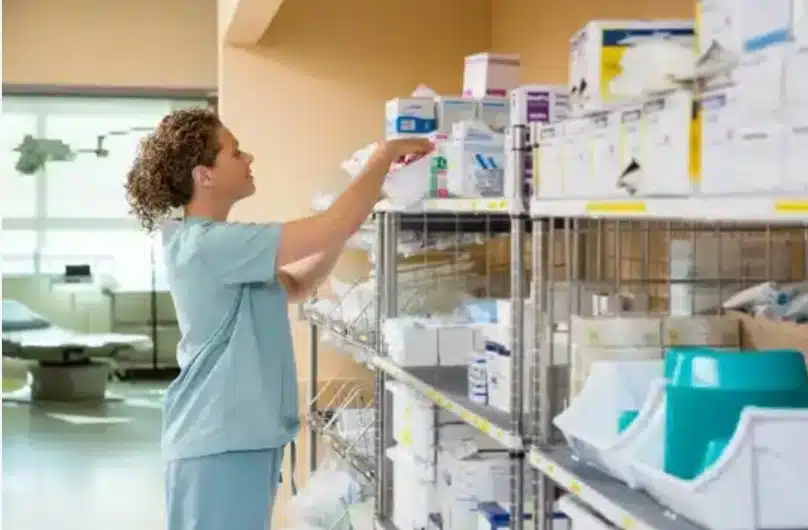The current pandemic has taught us a valuable lesson one must not ignore: it's to take good care of our overall health and that emergencies can happen at any time. Our daily practices are detrimental enough; added to that are viruses, germs, and bacteria in the external environment.
Therefore, it is important to have medical-grade supplies ready at home in case of any medical emergencies—flu, bacterial infection, sprain, or scrape.
If you do not have these household essentials yet, then it's time to shop medical devices for you and your family’s home health care. In this article, we have made a list of medical-grade supplies that every family should have.
#1: Thermometer
A medical thermometer is one of the most important devices you can have at home, especially if you have a newborn baby or young children. This helps you determine your body's temperature and whether or not a medicine is necessary. It also helps monitor if the treatment is working. Generally, a temperature is considered a fever if it reaches 37.5 or higher.
#2: First Aid Kit
In case of an emergency at home, you will need a first-aid kit. Having this at home will help stabilize a person before rushing them to a nearby clinic or hospital for further medical assistance.
A well-equipped first-aid kit should include:
Gauze bandages
This has a long list of uses from holding a cotton pad with ointment onto the wound, soaking up blood from a bleeding wound, to wrapping around injuries such as strains and sprains in case a compression bandage isn't available.
Compression bandage
This long strip of stretchy cloth is used to wrap around injuries common in ankles and wrists, known as sprain and strain. It provides gentle pressure on the injury to help reduce swelling and prevent it from occurring in the first few days.
Adhesive surgical tape
Just like how coffee-mate complements coffee, an adhesive surgical tape is surgical gauze's bestie. Unlike ordinary tape, this surgical tape won't stick to your wounds, making it ideal for maintaining safe protection.
Antibiotic Ointment
Minor wounds at home, such as scrapes, cuts, and abrasions, heal on their own but applying antibiotic ointment can prevent the risk of the wound developing into serious infections.
Hot and Cold Packs
These magic bags help support healing as well as reduce swelling and discomfort for minor injuries and pains.
Topical antiseptics
A good topical antiseptic, whether in the form of soap, liquid, or spray, washes away debris from minor wounds, knocking off germs and bacteria. They are widely used in hospitals, especially in surgical rooms, and can be a useful addition to your kit.
#3: Emergency Blankets
Having these at home can be beneficial during winter and cold weather. A person exposed to cold weather can keep warm with an emergency blanket that limits heat loss and blocks the wind to prevent hypothermia and shock.
#4: Medical-grade Splint
If an accident at home causes a sprain or broken bone, the best line of defense is a medical-grade splint to prevent your injury from further damage before you can get professional medical care at the earliest possible time.
#5: Saline
Sterile saline is not much more than salt added to water, but it's also an important addition to your medical supplies in the cabinet. It works as an effective spray to relieve nasal congestion; it also keeps your nasal moist during cold weather. Another use for sterile saline is it washes and cleanses wounds and surgical sites, as well as an eye flush.
#6: Vitamin B12 drip
You can buy this online or from a local pharmacy or medical supply store. It is very effective for individuals with low blood levels or those who suffer from anemia due to B12 deficiency. Long-term B12 deficiency can lead to nerve damage.
Despite the fact that you can get B12 from foods that contain this vitamin, certain health conditions in some individuals make it difficult for them to absorb enough B12 from their diets. As a result, it is extremely beneficial to have a supply of B12 shots or drips ready at home in case you need them.
#7: Eyewash
When buying medical supplies, don't forget the eyewash! Eye injuries can happen more often than you think. Whether it's caused by hairspray, dust, or a splash of spicy sauce and other liquid items, an eyewash solution can help relieve discomfort.
Keeping an eyewash solution in your medicine cabinet can help you treat an eye injury at home as quickly as possible.
Conclusion
Medical emergencies at home can happen anytime. You’ll never know what and when to expect. That is why it’s important to have these medical-grade supplies ready at home to prevent further damage rather than waiting until you’re able to get medical help.

